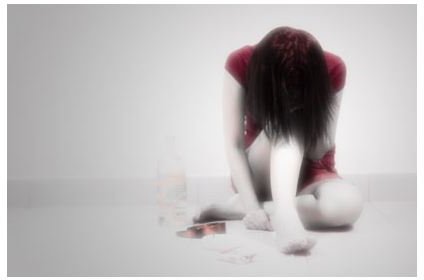Guide to Clinical Depression Symptoms
Introduction to Clinical Depression
What defines clinical depression? Clinical depression is much more than feeling “down” on occasion, or having a case of “the blues.” Clinical depression, or major depressive disorder, as it is sometimes referred to, is so serious that it affects the stricken individual’s ability to function on a day to day basis. The lows are so low that emptiness and despair become so natural to the person’s everyday sense of life that soon they feel as if there is no hope for recovery. It is an illness that requires long term treatment, and should never be thought of as a weakness. Fortunately there are clinical depression symptoms to watch out for in yourself and in loved ones so that treatment can be sought out.
Signs and Symptoms of Clinical Depression
When you are depressed, things may seem hopeless, but in reality, they are not. There is a world of treatment available for major depression, but you first must learn to recognize the signs and symptoms if you are going to be properly diagnosed.
Signs and Symptoms of Clinical Depression:
- Feelings of sadness or unhappiness.
- Crying all the time.
- Irritability or frustration, even over small things.
- Reduced sex drive.
- Sleep disturbances such as insomnia or sleeping too much.
- Changes in appetite - Depending on the person, depression can either cause weight gain or weight loss.
- Agitation or restlessness -pacing, wringing of the hands, or an inability to sit still.
- Slowed thinking, speaking or body movements
- Fatigue, tiredness and loss of energy - even small tasks may require a huge effort
- Feelings of worthlessness or guilt, focusing on things that have occurred in the past and blaming yourself for past failures.
- Trouble thinking, concentrating or making decisions.
- Frequent thoughts of death, dying or suicide,
- Unexplained physical problems such as back pain, headaches, and stomach problems
Signs of Clinical Depression in Younger Children and Teens:
- In younger children, symptoms include irritability, sadness, hopelessness, and worry.
- Adolescents and teens may exhibit anxiety, anger, and avoidance of social interaction.
If you or someone you know is exhibiting any of these signs it is likely that you or they are suffering from clinical depression and should seek treatment from a qualified mental health professional as soon as possible before things get out of hand. Clinical depression is so serious that it is believed that 15% of depressed people commit suicide. This is why it is so important to seek out help from an understanding and trusted friend or family member if you are experiencing clinical depression symptoms. Speaking with a mental health professional is the best thing you can do for yourself if you find that you are suffering from clinical depression.
References
- Clinical Depression - https://www.mayoclinic.com/health/depression/DS00175/DSECTION=symptoms
- Depression - https://helpguide.org/mental/depression_signs_types_diagnosis_treatment.htm
- Depression - https://www.hms.harvard.edu/hmni/on_the_brain/volume02/special/SPDepr.html
Photo Credit
- Depression - Photovac.com
